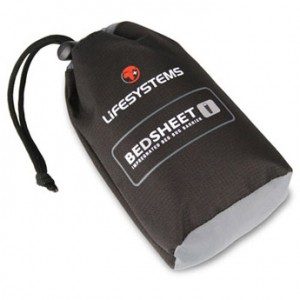Bed bugs are found worldwide and are a problem for many travellers. They are often found in hostels but can also make their way into hotels and transport links, taking a ride in suitcases and backpacks.
When fully grown, bed bugs are visible to the naked eye: they are around 4–6mm in length and a flat oval shape. Bed bugs live in cracks and crevices within walls and furniture such as bed frames and mattresses – hence their name! They can also live for up to a year without feeding, so can remain in their new found home quite comfortably for some time without a host to feed on so they are very difficult to get rid of!
Bed bugs mainly bite at night when a person is sleeping. The combination of body heat and carbon dioxide attracts these tiny bugs to bite exposed skin areas. They feed on blood. Bed bugs are not known to carry disease but some people develop itchy red bumps which can last several days.
How you can avoid bed bugs:
Before You Arrive:
• Plan where to stay, check reviews and recent complaints of bedbugs at hotels
When you Check In:
• If you suspect your bed is infested- treat the sheets with a fabric insecticide treatment, just make sure your bedding is totally dry before climbing in!
• Plan where to stay, check reviews and recent complaints of bedbugs at hotels
• Be aware of a musty odour (from bugs scent glands) in the room. This may be a sign of a large infestation.
• Look out for black spots on bedding; these will be blood spots from squashed bugs after feeding
• Store your suitcase/backpack on a stand, away from the bed and walls
While you’re Sleeping:
• Sleep in your own sleeping bag/liner and use a bed bug sheet, preferably impregnated with insecticide.

While you’re Travelling:
• Sleep under an impregnated mosquito net
• Clean bedding in hot water and dry on the highest dry setting
• Pack any dirty clothes that may be infested in a tight sealable bag
If you get bitten:
• Bites from bed bugs are often in straight lines as opposed to mosquito bites which are more random. This will help you to identify whether it mosquitoes or bed bugs that have bitten you
• A mild steroid cream such as hydrocortisone and some antihistamines can help manage to manage any itching
